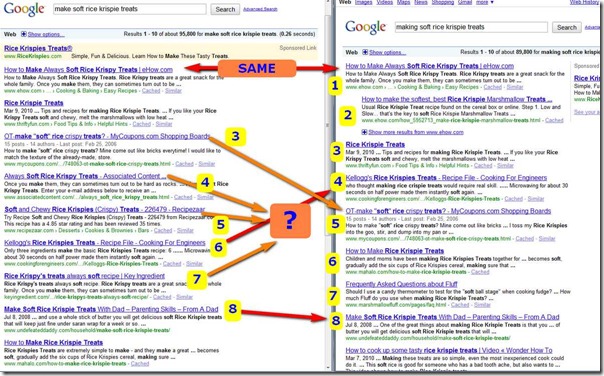 To get more search engine traffic there are a lot of things you can do. You can read all about search engine optimization until you go blind. You could even hire an SEO consultant if you have money to burn. You could comment on a thousand blogs a day with a link back to your website. You could research keywords with Google’s keyword tool, the AdSense keyword tool, and the AdWords keyword tool. And, don’t forget about the Google keyword research tool.
To get more search engine traffic there are a lot of things you can do. You can read all about search engine optimization until you go blind. You could even hire an SEO consultant if you have money to burn. You could comment on a thousand blogs a day with a link back to your website. You could research keywords with Google’s keyword tool, the AdSense keyword tool, and the AdWords keyword tool. And, don’t forget about the Google keyword research tool.
What the–?
Has Arctic Llama lost his mind? Aren’t all of those tools listed up there the same thing? In fact, some of those tools don’t even exist! Maybe it’s time to look elsewhere for information about quality website content writing that drives more search engine traffic to websites. What kind of professional freelance writer would write such a thing?
It is possible. But before you go, let me explain. Then, you just might be wondering if those OTHER websites you are reading are filling you in on all the details, or if they even know them. (O.K. Maybe that is a bit of an exaggeration.)
Content Is King … IF Content Matches the Search Exactly
If you’ve been writing online for more than five minutes, you have read that content is king. That isn’t necessarily as true as it sounds. In the end, content may be king, but there is a lot of road in between your website, the search engines, the searchers, and the end.
Here is the ugly reality. A title tag that matches EXACTLY to what a Google user types into the search engine box is much more likely to be returned as a high search ending ranking result than one that is off by even a single word, or a single reversed word order!
To see what I’m getting at, fire up a web browser. Any web modern web browser will do. If you still have Internet Explorer 7, or heaven forbid, Internet Explorer 6, you’ll have to finesse the experiment a little bit by searching for something completely unrelated to anything you have ever searched for before. Try something like knitting needles, or Ford transmissions, or maybe Oxnard, California.
If you have a current browser, just open up the Privacy Mode. In Internet Explorer it is called Privacy Mode. In Google Chrome it is called Incognito Mode, and in Firefox it is called Private Browsing. The point of using the private mode is to keep Google from using all of the cookies and other data stored on your computer to “customize” or otherwise skew the results you get from your search.
In private mode, type in any Google search you would like. Just make it at least four words and try and make it an actual English phrase that someone might actually write or say. Then, try rephrasing the same search by changing just one word, or adding just one word, or subtracting just one word. Do you get the same search results each time or are they different? Look closely. Just because #1 search result is the same doesn’t mean you are getting the same results.
Click the image to see a bigger version.
This is two seemingly very related searches on Google on 03/28/2010 using Google Chrome in Incognito Mode. The search on the left is for make soft rice krispie treats and the search on the right is for making soft rice krispie treats. (Links go to my article on soft rice crispie treats on my parenting website. – See what I did there with the spelling?) Now, this is hardly night and day difference in searches, and yet, the search rankings and search results are not the same.
Now, Google claims that they take synonyms into account, but technically make and making are not synonyms. Of course, that can be said about most words. That is why there are two words!
For example, automobile includes more types of motorized vehicles than cars does, and motorized vehicles includes several kinds of recreational vehicles and such that would not count as automobiles. In other words, synonyms can be tricky business.
In this case, however, the point is that one gets very different search engine result rankings based on only the tiniest of variations in the search. Although the #1 results remains the same (as does my article on my parenting skills website at #8), the search results ranked #4, #5, and #7 disappear altogether from the first page of search results if one changes a single word in the search. The #3 and #6 ranked search results become #4 and #5 in the second search.
These difference might not seem like much to the inexperienced eye, but an online content pro knows that there is an enormous difference between ranking in the Top 5 and the next five. There is an even bigger difference between being on the first page of search results and being on the second page.
Ironically, the same article on Undefeated Daddy that ranks #8 in both of these searches also ranks #8 in a search for soft rice krispie treats trick. Look closely and you’ll see that this article turns up on the top page of Google search results because the title of another article on that site happens to have the word “trick” in it.
I am completely aware that these are not important search phrases, and that these keywords not only do not pay per click very much, but that they also do not drive much traffic. However, at least a few visitors each day end up there due these various searches. More importantly, there are other “accidental” or slightly “incorrect” searches that people make on Google that send much more valuable traffic to websites I own based on variations very similar to these. (I wouldn’t use the golden goose as an example!)
The point is that depending upon the topic of your article, there may be some real value in ensuring that you capture multiple ways of saying the same thing in order to match searches as close to exactly as possible each and every time. As a matter of fact, in certain circumstances it might be advisable to allow a typo or two to sail through in order to match up with those searchers who aren’t as precise in their use of language.
If an extra 1,000 visitors happen to hit one of your webpages because a search for Attorney Generals matches a line in the second paragraph of your post that oddly enough is the only time you didn’t use the correct term, Attorneys General, I’d say that is a worthwhile typo. Wouldn’t you?
While you are at it, make sure that article also includes AG, AGs, and, if it can be fit without being inaccurate, you might also want to consider DA, DAs, and District Attorney for those who might not have the knowledge or the inclination to be precise in their query. (Notice the varying use of search and query in this article. Query is more technical, while search is more common. Does it matter which one is “right” if they end up getting readers here to where they find information they were looking for?)
Those four different search tools I referenced up at the top of this article? It is not the purpose of this blog to rank highly for those terms, but if someone happens to come along who wants to know how to change their writing to get more traffic from keywords they research in the Google keyword tool, guess where they just might end up?
Do you use multiple ways of saying things in your posts or articles? Do you ever ignore typos or purposely use slightly incorrect grammar or spelling in order to catch a bigger pool of fish?
